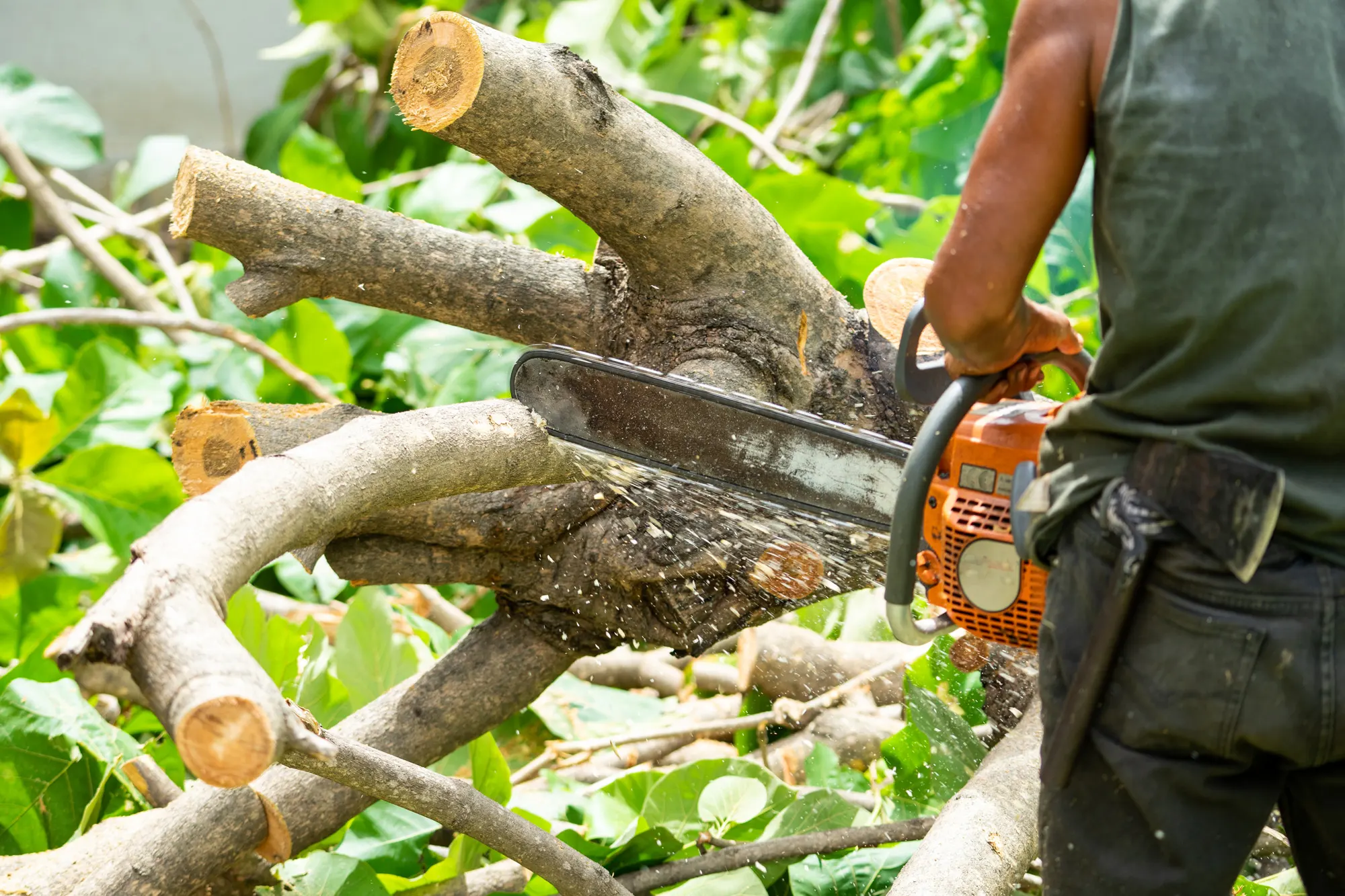Storm Damage Response
Rapid recovery from weather-related tree emergencies
Comprehensive Storm Damage Tree Services
Severe weather events can leave a trail of damaged trees that pose significant risks to your property and safety. At 1 Tree Emergency, we specialize in rapid response to storm-damaged trees, providing expert assessment and mitigation services when you need them most.

Common Storm Damage Tree Issues
Storms can affect trees in various ways, creating hazardous conditions that require professional attention:
Broken Limbs
High winds can break branches and limbs, creating "widow makers" that hang precariously and may fall without warning.
Leaning Trees
Saturated soil and strong winds can cause trees to lean, indicating potential root failure and imminent falling risk.
Split Trunks
Lightning strikes and wind stress can split tree trunks, compromising structural integrity and creating hazardous conditions.
Uprooted Trees
Complete root failure can cause trees to uproot, potentially damaging structures, vehicles, and utility lines.
Our Storm Damage Response Process
When you contact us for storm damage tree services, our comprehensive approach ensures your property is made safe as quickly as possible:
- Emergency Assessment: Our certified arborists evaluate all storm-damaged trees on your property, identifying immediate hazards and prioritizing response actions.
- Hazard Mitigation: We immediately address the most dangerous situations, such as trees on structures or hanging limbs over walkways and driveways.
- Damage Control: For trees that have damaged structures, we carefully remove them to prevent further damage during the extraction process.
- Property Clearing: We remove fallen trees and limbs from your property, clearing driveways, walkways, and yards to restore safe access.
- Preventative Measures: We assess remaining trees for storm damage that may not be immediately apparent but could cause problems in the future.
- Documentation: We provide comprehensive documentation for insurance claims, including before and after photos, detailed assessment reports, and itemized services.
The Importance of Prompt Response
After a storm, damaged trees pose immediate safety risks and can cause secondary damage if not addressed promptly. Our 24/7 emergency response ensures that storm-damaged trees are assessed and mitigated before they can cause additional problems.
Storm Preparedness and Prevention
While we specialize in emergency response, we also offer services to help prepare your trees for future storms:
- Preventative tree assessments to identify potential weaknesses before storms
- Strategic pruning to reduce wind resistance and remove weak branches
- Cabling and bracing for trees with structural weaknesses
- Recommendations for storm-resistant species for future plantings
Related Services
Our storm damage response services are often used in conjunction with these related services:
- Emergency Tree Removal
Complete removal of fallen or severely damaged trees that pose immediate risks.
- Property Clearing
Comprehensive cleanup of debris and damaged vegetation after storms.
- Hazard Assessment
Professional evaluation of trees for potential hazards before or after storms.
Storm Damage Checklist
After a storm, check your property for these common tree hazards:
- Broken or hanging limbs
- Leaning or tilted trees
- Split or cracked trunks
- Raised soil around the base
- Trees touching power lines
If you notice any of these signs, call us immediately for an emergency assessment.
Customer Testimonial
Michael R.
Homeowner, Miami FL
Frequently Asked Questions
Common questions about our storm damage tree services
How do I know if a storm-damaged tree is dangerous?
Signs of dangerous storm damage include leaning trunks, hanging branches, split trunks, raised soil around the base, and any tree contact with power lines. If you notice these signs, stay away from the tree and call us for an emergency assessment.
Will my insurance cover storm damage to trees?
Most homeowner's insurance policies cover tree removal and associated damage when the tree falls due to wind, lightning, or other covered perils and damages an insured structure. Our insurance claim support team can help determine coverage and provide necessary documentation.
Can you respond during an active storm?
For safety reasons, we typically cannot perform tree work during active storms with high winds, lightning, or heavy rain. However, we can respond immediately after conditions become safe enough for our crews to work.
What should I do if a tree falls on power lines?
If a tree contacts power lines, stay at least 50 feet away and call your utility company immediately. Treat all downed lines as energized and dangerous. After the utility company secures the area, we can safely remove the tree.